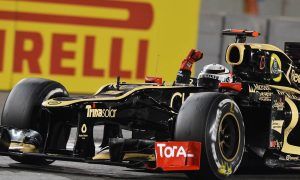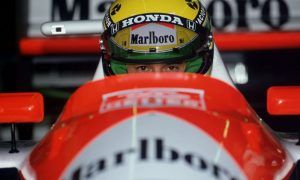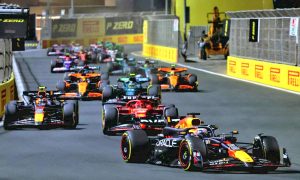
A few months ago, I wouldn't have given such an absurd idea a second thought. I'm not and never really have been a gamer - the only console I've ever owned was one of the original PlayStations back in 1995, and then mainly because it boasted the then-state of the art official Formula 1 game. Graphics that felt so authentic at the time now look like primitive pixilated cartoons compared to the smooth high-definition of modern games, while the push-button basic handling was a world away from feeling authentic.
These days there's a wide range of realistic steering wheels, flappy paddle gear shifting, and braking and accelerators accessories readily available for every platform. Add a proper seating rig and a wraparound HD television, and today's sensation of virtual racing is infinitely closer to the actual experience - far more so than playing the latest iteration of FIFA can ever hope to emulate the simple pleasures of kicking a football around with your mates. Perhaps most significant of all is the way internet connectivity has made it possible for dozens of people from all around the world to compete against each other in real time, rather than one player facing off against a bunch of anonymous and frankly not terribly bright computer AI drivers.
Graphics that felt so authentic at the time now look like primitive pixilated cartoons compared to the smooth high-definition of today's games
Yet when I started to watch some of the online races on television I still had the quintessential problem of a non-gamers mindset: that it ultimately isn't real, and therefore fundamentally doesn't matter. If something goes wrong, or the race isn't going your way, you can simply hit pause and reset the game to start again. You obviously can't do that in a real event. Similarly if you spin off the track into a barrier or collide with a competitor, then "low damage" settings mean you can just carry on as if nothing happened. It tends to promote an artificial "digital bravery" in which it's very easy to be extraordinarily daring and attempt outrageously risky moves that no one would even dream of at the real circuit, where a single wrong move can have painful repercussions.

It wasn't until I was watching a recent IndyCar iRacing event on a simulated Michigan International Speedway that I realised something: I was actually enjoying watching it as much if not more as a virtual event than I had the equivalent real world oval race. And the simple reason for that is that I wasn't permanently petrified that someone might be about to die in front of my eyes in the next five seconds.






